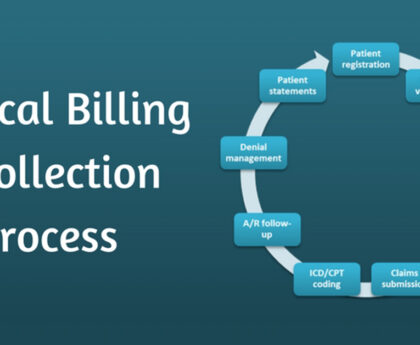In today’s fast-paced world, the act of eating has often become a rushed and mindless activity. We eat on the go, buy Xanax in front of screens, and often pay little attention to what we’re consuming. However, practicing mindful eating can transform the way you relate to food and significantly improve your overall health and well-being. In this comprehensive guide, we’ll explore the principles of mindful eating and how it can positively impact your life.
The Essence of Mindful Eating
Mindful eating is the practice of paying full attention to the experience of eating, from choosing and preparing food to savoring each bite. It involves engaging all your senses and being present in the moment during meals. By doing so, you can develop a healthier relationship with food and gain numerous physical and psychological benefits.
The Benefits of Mindful Eating
Weight Management
Mindful eating encourages you to listen to your body’s hunger and fullness cues. This can help prevent overeating and promote weight loss or maintenance.
Improved Digestion
Eating slowly and savoring each bite can aid digestion and reduce discomfort such as bloating and indigestion.
Better Food Choices
Mindful eating helps you become more aware of the nutritional value of foods and how they make you feel. This awareness can lead to making healthier food choices.
Enhanced Satisfaction
Savoring the flavors and textures of food can increase your satisfaction with meals, reducing the urge to snack on less healthy options later.
Stress Reduction
Mindful eating promotes relaxation and reduces stress, as it encourages you to eat without distractions and focus on the present moment.
Improved Relationship with Food
By becoming more aware of your eating habits and emotional triggers, you can develop a healthier relationship with food and reduce emotional eating.
Principles of Mindful Eating
Eating with Awareness
Sit down at a table to eat without distractions like TV or smartphones.
Take a moment to observe the appearance, colors, and textures of your food before you start eating.
Savoring Each Bite
Chew your food thoroughly and savor the flavors.
Pay attention to the aroma, taste, and mouthfeel of each bite.
Listening to Your Body
Eat when you’re genuinely hungry, not out of boredom or stress.
Pause during your meal to assess your level of fullness. Stop eating when you’re satisfied but not overly full.
Mindful Food Choices
Choose foods that nourish your body and align with your health goals.
Be mindful of portion sizes and avoid overeating.
Emotional Awareness
Pay attention to emotional cues that trigger eating. Are you eating because you’re hungry or because of stress, sadness, or boredom?
Find alternative ways to cope with emotions that don’t involve food, such as journaling, talking to a friend, or engaging in a relaxing activity.
Gratitude
Cultivate gratitude for the food you have and the effort that went into preparing it.
Consider the journey of your food from its source to your plate.
Practical Tips for Mindful Eating
Start Small
Begin by incorporating mindful eating into one meal a day. As you become more comfortable with the practice, expand it to other meals.
Engage Your Senses
Pay attention to the appearance, smell, texture, and taste of your food. Notice the sensations and emotions that arise during your meal.
Eat Slowly
Take your time to chew each bite thoroughly. Put your utensils down between bites to avoid rushing.
Pause and Reflect
Mid-meal, pause for a moment and check in with your body. Are you still hungry, or are you satisfied? Use this information to guide your eating.
Eliminate Distractions
Turn off the TV, put away your phone, and create a calm and focused eating environment.
Practice Gratitude
Before you start eating, take a moment to express gratitude for the nourishment your meal provides.
Stay Patient
Mindful eating is a skill that takes time to develop. Be patient with yourself and acknowledge that it’s okay to have moments of mindlessness.
Mindful Eating and Weight Management
Mindful eating has gained popularity as an effective tool for weight management. Contrary to fad diets that often involve strict rules and deprivation, mindful eating focuses on fostering a healthier and more intuitive relationship with food. Here’s how it can aid in weight management:
Portion Control
One of the fundamental principles of mindful eating is being aware of portion sizes. By paying close attention to your body’s hunger and fullness cues, you can naturally regulate your food intake. Over time, this can help prevent overeating and contribute to weight loss or maintenance.
Reduced Emotional Eating
Mindful eating encourages you to identify emotional triggers for eating, such as stress, boredom, or sadness. Instead of turning to food as a coping mechanism, you learn to address these emotions directly. This reduces the likelihood of consuming excess calories in response to emotional states.
Improved Food Choices
When you practice mindful eating, you become more attuned to the nutritional value of foods. You develop a deeper understanding of how different foods affect your body and energy levels. This increased awareness often leads to making healthier food choices, which can support your weight management goals.
Enhanced Satisfaction
Mindful eating emphasizes savoring each bite and fully enjoying your meals. By slowing down and relishing the flavors and textures of your food, you’re more likely to feel satisfied with smaller portions, reducing the urge to snack on less healthy options later in the day.
Mindful Eating and Emotional Well-being
Mindful eating extends beyond the physical aspects of food—it also nurtures emotional well-being. Here’s how it positively impacts your mental and emotional health:
Stress Reduction
In our fast-paced lives, meals are often rushed and consumed in stressful environments. Mindful eating encourages you to create a calm and relaxed mealtime atmosphere. By focusing on the sensory experience of eating, you can reduce stress and savor the pleasure of each bite.
Improved Mood
Eating mindfully promotes a positive relationship with food. This can enhance your overall mood and contribute to a healthier emotional state. When you’re not burdened by guilt or negative feelings associated with eating, you can enjoy a greater sense of emotional well-being.
Reduced Anxiety
Mindful eating practices, such as deep breathing and staying present during meals, can help reduce anxiety. By grounding yourself in the present moment, you can alleviate anxiety related to past or future concerns.
Emotional Resilience
As you become more adept at recognizing emotional triggers for eating, you can develop healthier coping strategies. This newfound emotional resilience empowers you to navigate life’s challenges without relying on food for comfort.
Mindful Eating as a Lifestyle
To fully embrace mindful eating, consider it as a lifelong practice rather than a temporary diet. Here are some additional tips for incorporating mindful eating into your daily life:
Mindful Snacking
Extend the practice of mindful eating to snacks. Before reaching for a snack, pause and assess your hunger level. Choose nourishing options that align with your health goals.
Practice Gratitude
Before each meal, take a moment to express gratitude for the food in front of you. Reflect on the effort that went into producing, preparing, and serving the meal.
Mindful Cooking
Extend mindfulness to the kitchen. When cooking, engage all your senses. Observe the colors, textures, and aromas of the ingredients. Enjoy the process of creating a delicious and nourishing meal.
Slow Down
Eating mindfully involves slowing down your pace. Put your utensils down between bites, and take your time to chew and savor each mouthful. This simple act can help you feel more satisfied with smaller portions.
Seek Support
Consider joining a mindful eating group or seeking guidance from a registered dietitian or therapist who specializes in mindful eating. Group support and professional guidance can enhance your practice.
Conclusion
Mindful eating is a transformative practice that goes beyond dieting and calorie counting. It encourages you to reconnect with your body’s innate wisdom, buy Xanax fostering a healthier relationship with food. By paying attention to your body’s hunger and fullness cues, making conscious food choices, and embracing the sensory experience of eating, you can improve your physical and emotional well-being. Mindful eating is not a quick fix but a sustainable lifestyle that promotes lasting health and happiness. Begin your mindful eating journey today and savor the profound benefits it brings to your life.



